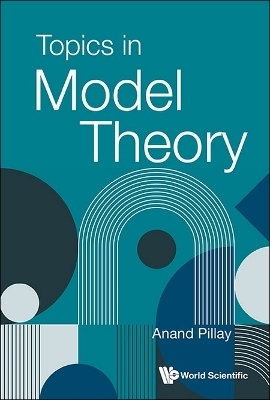
Mathematical Problem Solving
Academic Press Inc (Verlag)
978-0-12-628870-4 (ISBN)
- Titel ist leider vergriffen;
keine Neuauflage - Artikel merken
Alan Schoenfeld is the Elizabeth and Edward Conner Professor of Education and Affiliated Professor of Mathematics at the University of California at Berkeley. He is a Fellow of the American Association for the Advancement of Science and of the American Educational Research Association (AERA), and a Laureate of the education honor society Kappa Delta Pi; he has served as President of AERA and vice President of the National Academy of Education. He holds the International Commission on Mathematics Instruction’s Klein Medal, AERA's Distinguished Contributions to Research in Education award, and the Mathematical Association of America’s Mary P. Dolciani award. Mathematical Problem Solving is laid the foundations for the field’s work on mathematical thinking and problem solving. The ideas in the book have been referred to as the “industry standard for research on mathematical problem solving.
Preface
Acknowledgments
Introduction and Overview
Part One Aspects of Mathematical Thinking: A Theoretical Overview
1. A Framework for the Analysis of Mathematical Behavior
Overview
Typical Problems, Typical Behavior: The Four Categories Illustrated
Resources
Heuristics
Control
Belief Systems
Summary
2. Resources
Routine Access to Relevant Knowledge
The Broad Spectrum of Resources
Flawed Resources and Consistent Error Patterns
Summary
3. Heuristics
Introduction and Overview
What a Problem Is and Who the Students Are
Toward More Precise and Usable Descriptions of Heuristic Strategies
The Complexity of Implementing a "Straightforward" Heuristic Solution
Heuristics and Resources Deeply Intertwined
Summary
4. Control
Introduction and Overview
On the Importance of Control: A Look at a Microcosm
Modeling a Control Strategy for Heuristic Problem Solving
Toward a Broader View of Control
Literature Related to Control
Summary
5. Belief Systems
Selections from the Relevant Literature
A Mathematician Works a Construction Problem
The Student as Pure Empiricist: A Model of Empirical Behavior
How the Model Corresponds to Performance
A Deeper Look at Empiricism: CS and AM Work Problem 1.1
Further Evidence Regarding Naive Empiricism: DW and SP Work Four Related Problems
Summary
Part Two Experimental and Observational Studies, Issues of Methodology, and Questions of where we Go Next
Overview
6. Explicit Heuristic Training as a Variable in Problem-Solving Performance
A Brief Discussion of Relevant Literature
Experimental Design
Results
Two Methodological Questions
Discussion
Implications and Directions for Extension
Summary
7. Measures of Problem-Solving Performance and Problem-Solving Instruction
A Brief Discussion of Relevant Work
The Experimental and Control Treatments
Measure 1 : A Plausible-Approach Analysis of Fully Solved Questions
Discussion of Testing Results
Measure 2: Students' Qualitative Assessments of Their Problem Solving
Measure 3: Heuristic Fluency and Transfer
A Brief Discussion of Control Issues
Summary
8. Problem Perception, Knowledge Structure, and Problem-Solving Performance
Background
Method
Results of the Sortings
Discussion
Summary
Appendix: Problems Used in the Card Sort
9. Verbal Data, Protocol Analysis, and the Issue of Control
Overview
Background, Part 1: Verbal Methods
Through a Glass Darkly: A Close Look at Verbal Data
Background, Part 2: Other Protocol Coding Schemes and Issues of Control
The Major Issues for Analysis: A Brief Discussion of Two Protocols
A Framework for the Macroscopic Analysis of Problem-Solving Protocols
Episodes and the Associated Questions
A Full Analysis of a Protocol
A Further Discussion of Control: More Data from Students, and the Analysis of an Expert Problem Solver's Protocol
Brief Discussion: Limitations and Needed Work
Summary
Appendix 9.1 : A Single-Person Protocol of the Cells Problem
Appendix 9.2: Protocol 9.2
Appendix 9.3: Protocol 9.3
Appendix 9.4: Protocol 9.4
Appendix 9.5: Protocol 9.5
10. The Roots of Belief
A Discussion of Two Geometry Protocols
A Brief Analysis of Protocol 10.1
A Brief Analysis of Protocol 10.2
A Brief Discussion
The Strength of Empiricism: More Data
The Origins of Empiricism
Summary
Postscript
Appendix 10.1: Protocol 10.1
Appendix 10.2: Protocol 10.2
References
Author Index
Subject Index
| Erscheint lt. Verlag | 26.8.1997 |
|---|---|
| Verlagsort | San Diego |
| Sprache | englisch |
| Gewicht | 760 g |
| Themenwelt | Mathematik / Informatik ► Mathematik ► Logik / Mengenlehre |
| ISBN-10 | 0-12-628870-4 / 0126288704 |
| ISBN-13 | 978-0-12-628870-4 / 9780126288704 |
| Zustand | Neuware |
| Haben Sie eine Frage zum Produkt? |
aus dem Bereich


